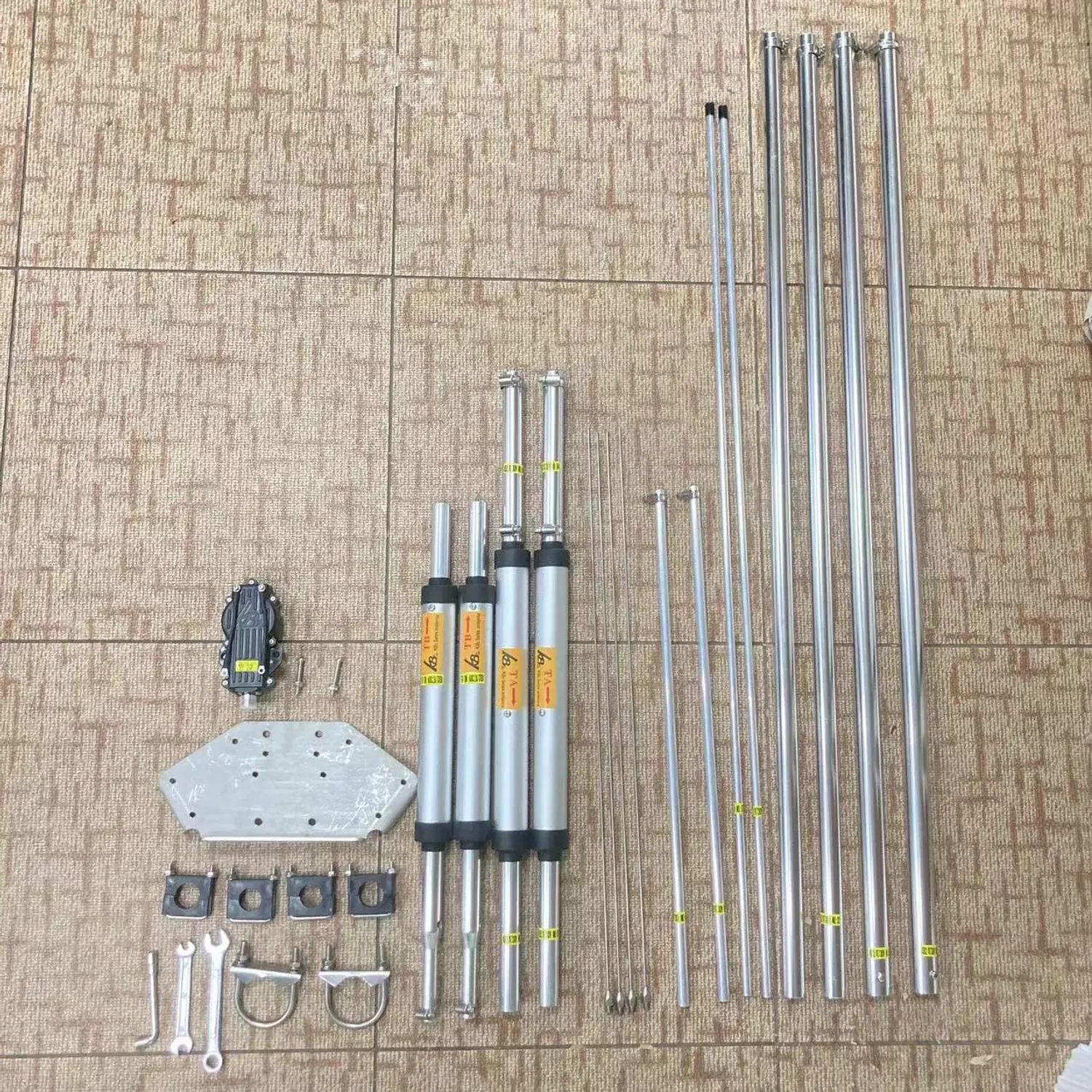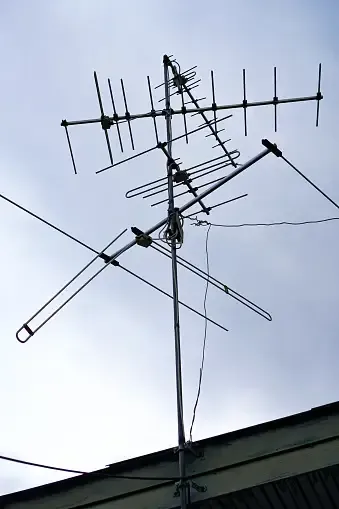
Send Inquiry
How Antenna Tuners Work and Finding the Right One for You?
Antenna tuners are essential tools for radio enthusiasts, helping to ensure that your radio system operates efficiently and effectively. Understanding how antenna tuners work and finding the right one for your needs can make a significant difference in your overall radio experience. In this comprehensive guide, we'll delve into the intricacies of antenna tuners and provide you with the insights needed to choose the best tuner for your setup. For those looking for top-quality equipment, Ruixue, a leading antenna supplier, offers a range of antennas with HF automatic antenna tuners that guarantee superior performance and reliability. Trust Ruixue to enhance your radio communication experience with their advanced technology and expertise.
What is an Antenna Tuner?
An antenna tuner, also known as an antenna tuning unit (ATU) or matching network, is a device used to match the impedance of the radio transmitter or receiver to the antenna. This process ensures maximum power transfer and minimizes signal reflection, which can lead to inefficiencies and potential damage to your equipment.
How Do Antenna Tuners Work?
Antenna tuners work by adjusting the electrical length of the antenna system to match the operating frequency. This is achieved through a combination of inductors and capacitors that fine-tune the impedance, creating a match between the transmitter and the antenna. Here's a step-by-step look at how antenna tuners work:
- Signal Detection: The tuner detects the signal from the transmitter and measures the impedance mismatch between the antenna and the transmitter.
- Adjustment: The tuner adjusts its internal inductors and capacitors to create an impedance match. This adjustment can be manual, semi-automatic, or fully automatic, depending on the type of tuner.
- Matching: Once the impedance is matched, the signal can pass through the tuner with minimal reflection, ensuring maximum power transfer to the antenna.
Types of Antenna Tuners
Choosing the right antenna tuner depends on your specific needs and setup. There are several types of antenna tuners available, each with its own advantages and disadvantages.
Manual Antenna Tuners
Manual antenna tuners require the operator to manually adjust the inductors and capacitors to achieve the desired impedance match. These tuners are typically more affordable and allow for precise control, but they can be time-consuming and require a certain level of expertise.
Automatic Antenna Tuners
Automatic antenna tuners automatically adjust the impedance matching without the need for manual intervention. These tuners are convenient and user-friendly, making them ideal for beginners or those who prefer a hands-off approach. However, they tend to be more expensive than manual tuners.
Remote Antenna Tuners
Remote antenna tuners are designed to be installed at the base of the antenna, allowing for impedance matching at the antenna feed point. This setup can reduce losses in the transmission line and improve overall system performance. Remote tuners can be either manual or automatic.
Finding the Right Antenna Tuner for You
When it comes to finding the right antenna tuner for your needs, several factors should be considered. Understanding these factors will help you make an informed decision and ensure that your radio system operates at its best.
Power Handling
One of the most critical factors to consider is the power handling capability of the tuner. Ensure that the tuner can handle the maximum power output of your transmitter to avoid damage and ensure efficient operation.
Frequency Range
Different tuners are designed to work within specific frequency ranges. Make sure that the tuner you choose covers the frequency bands you intend to operate on. This is especially important for amateur radio operators who use multiple bands.
Impedance Matching Range
The impedance matching range of the tuner determines how well it can match different antenna impedances. A wider matching range provides greater flexibility and can accommodate a broader range of antennas and operating conditions.
Type of Antenna
The type of antenna you are using can also influence your choice of tuner. For example, end-fed antennas and long-wire antennas often require tuners with a broader matching range compared to dipole or Yagi antennas.
Installation Location
Consider where you plan to install the tuner. If you prefer a setup where the tuner is located near the transmitter, a traditional manual or automatic tuner will suffice. However, if you want to reduce losses in the transmission line, a remote tuner installed at the base of the antenna may be a better option.
Budget
Budget is always a consideration when purchasing equipment. Manual tuners are generally more affordable than automatic or remote tuners. However, it's important to balance cost with the features and performance you need for your specific application.
Benefits of Using an Antenna Tuner
Using an antenna tuner offers several benefits that enhance the performance and longevity of your radio system.
Improved Signal Quality
A properly matched antenna system ensures that the maximum amount of power is transferred from the transmitter to the antenna, resulting in clearer and stronger signals. This improvement in signal quality can make a significant difference, especially in weak signal conditions.
Increased Efficiency
By minimizing signal reflection and ensuring maximum power transfer, an antenna tuner increases the overall efficiency of your radio system. This efficiency translates to better performance and reduced strain on your transmitter.
Equipment Protection
An impedance mismatch can lead to high levels of reflected power, which can damage your transmitter or other components in your system. An antenna tuner protects your equipment by ensuring that the impedance is correctly matched, reducing the risk of damage.
Flexibility and Versatility
Antenna tuners provide the flexibility to use a variety of antennas with different impedances. This versatility is particularly beneficial for amateur radio operators who frequently change antennas or operate on multiple frequency bands.
Conclusion
Understanding how antenna tuners work and finding the right one for your needs is crucial for optimizing your radio system's performance. Whether you choose a manual, automatic, or remote tuner, the key is to consider factors such as power handling, frequency range, impedance matching range, and your specific antenna type. By making an informed decision, you can enjoy improved signal quality, increased efficiency, and enhanced protection for your equipment.
When it comes to reliable and high-quality Xiegu radio communication equipment at wholesale price, Ruixue stands out as a trusted supplier. With a wide range of antenna tuners and other essential radio communication devices, Ruixue offers products that meet the highest standards of performance and durability. By choosing Ruixue, you can be confident that you're investing in top-notch equipment that will enhance your radio experience. Explore Ruixue's offerings today and find the perfect antenna tuner to meet your needs.


